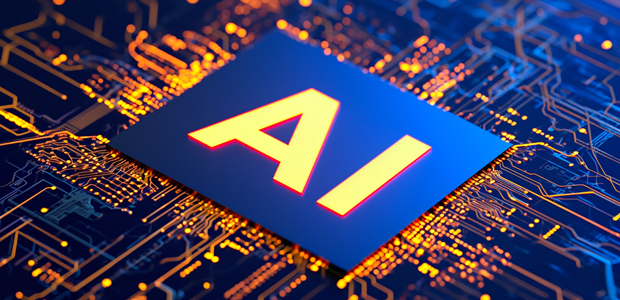Accurate and efficient medical coding is crucial for proper billing, reimbursement, and overall patient care. Artificial intelligence (AI) is emerging as a game-changing technology in the field of medical coding.

We inspect how AI is revolutionizing the medical coding process, improving accuracy, and boosting efficiency in ways that were previously unimaginable.
Medical Coding and Its Challenges
Medical coding is the process of transforming healthcare diagnoses, procedures, medical equipment, and services into universal alphanumeric codes. This standardized system allows for consistent documentation across healthcare providers, facilitates accurate billing, and enables efficient data analysis for research and public health initiatives.
However, medical coding is fraught with challenges:
- Complexity: With tens of thousands of codes in systems like ICD-10 and CPT, selecting the right code can be daunting.
- Constant updates: Coding systems are regularly updated to reflect new medical knowledge and procedures.
- Human error: Manual coding is prone to mistakes due to fatigue, oversight, or misinterpretation.
- Inconsistency: Different coders may interpret the same medical record differently, leading to coding variations.
- Time-consuming: Thorough review of medical records and accurate code assignment is a time-intensive process.
These challenges have significant implications for healthcare providers, insurers, and patients. Inaccurate coding can lead to claim denials, delayed reimbursements, and even legal issues. This is where AI comes into play, offering solutions to many of these long-standing problems.
The Rise of AI in Healthcare
Artificial Intelligence has been making inroads in various aspects of healthcare, from diagnostic imaging to drug discovery. In recent years, its application in medical coding has gained significant traction. AI in medical coding typically involves machine learning algorithms, natural language processing (NLP), and sometimes computer vision for handling handwritten notes or diagrams.
The adoption of AI in medical coding is driven by several factors:
- Increasing healthcare costs and the need for efficiency
- Growing complexity of medical procedures and corresponding codes
- The push towards value-based care, which requires accurate data
- Advancements in AI and machine learning technologies
- The digitization of health records, providing vast amounts of data for AI training
As these factors converge, AI is positioned to transform the landscape of medical coding, addressing many of its inherent challenges.
How AI Enhances Medical Coding Accuracy
AI significantly improves coding accuracy through various mechanisms:
Natural Language Processing (NLP)
NLP allows AI systems to understand and interpret human language in medical records.
This technology can:
- Extract relevant information from unstructured clinical notes
- Identify key diagnoses, procedures, and other billable items
- Understand context and nuances in medical terminology
For example, an NLP system can differentiate between a confirmed diagnosis and a ruled-out condition, ensuring that only actual diagnoses are coded.
Pattern Recognition
AI excels at recognizing patterns in vast amounts of data.
In medical coding, this means:
- Identifying common co-occurring diagnoses and procedures
- Flagging unusual code combinations that might indicate an error
- Suggesting additional codes based on historical patterns for similar cases
This pattern recognition ability helps catch potential errors and ensures thorough coding.
Continuous Learning
Unlike static rule-based systems, AI can continuously learn and improve.
This means:
- Adapting to new coding guidelines and updates automatically
- Learning from corrections made by human coders
- Improving accuracy over time as it processes more data
This continuous learning ensures that the AI system stays up-to-date and becomes increasingly accurate.
Consistency
AI systems apply the same logic consistently across all records, eliminating variations that can occur with human coders.
This leads to:
- More uniform coding across different patients and providers
- Reduced discrepancies in coding for similar cases
- Improved compliance with coding standards and guidelines
Consistency in coding is crucial for accurate billing and meaningful data analysis.
AI-Driven Efficiency Improvements in Medical Coding
Besides improving accuracy, AI significantly enhances the efficiency of the medical coding process:
Automated Code Suggestion
AI can automatically suggest appropriate codes based on the content of medical records.
This:
- Speeds up the coding process dramatically
- Reduces the cognitive load on human coders
- Allows coders to focus on complex cases that require human judgment
Some AI systems can even automatically assign codes for routine, straightforward cases, freeing up human coders for more challenging tasks.
Real-time Feedback and Validation
AI systems can provide instant feedback on code selection, offering:
- Warnings about potential errors or inconsistencies
- Suggestions for additional or alternative codes
- Explanations for why certain codes are recommended
This real-time feedback helps coders make informed decisions quickly, reducing the need for later revisions.
Streamlined Documentation Review
AI can quickly analyze entire medical records, highlighting:
- Relevant sections for coding
- Missing information that might be needed for accurate coding
- Inconsistencies between different parts of the record
This streamlined review process saves coders significant time in navigating lengthy and complex medical records.
Integration with EHR Systems
When integrated with Electronic Health Record (EHR) systems, AI can:
- Pull relevant information automatically
- Pre-populate coding fields
- Flag records that require human review
This integration reduces manual data entry and improves workflow efficiency.
Improved Risk Adjustment in Coding
- Research indicates that AI technology can boost coding accuracy by 5-7% by leveraging advanced data analysis to spot missed coding opportunities and fill documentation gaps.
Real-World Applications and Case Studies
Several healthcare organizations have already implemented AI in their coding processes with impressive results:
Case Study: Large Hospital Network
A large hospital network implemented an AI-powered coding system and reported:
- 30% reduction in coding time
- 20% improvement in coding accuracy
- 15% increase in appropriate reimbursements due to more extensive coding
Case Study: Outpatient Clinic Group
An outpatient clinic group using AI for medical coding found:
- 40% reduction in claim denials
- 25% faster turnaround time for billing
- Improved coder satisfaction due to reduced repetitive tasks
Application in Radiology Coding
AI has shown particular promise in radiology coding:
- Automatically extracting billable items from radiology reports
- Ensuring compliance with specific radiology coding guidelines
- Improving the accuracy of complex procedure coding
These real-world examples demonstrate the tangible benefits of AI in medical coding across various healthcare settings.
Challenges and Limitations of AI in Medical Coding
While AI offers significant improvements in medical coding, it’s not without challenges:
Data Quality and Quantity
AI systems require large amounts of high-quality, labeled data for training.
Challenges include:
- Ensuring data privacy and security
- Dealing with historical coding errors in training data
- Gathering sufficient data for rare conditions or procedures
Integration with Existing Systems
Implementing AI often requires integration with legacy systems, which can be complex and costly.
Regulatory Compliance
AI systems must comply with healthcare regulations like HIPAA, which can be challenging to ensure, especially as AI systems develop.
Ethical Considerations
There are ethical concerns about the use of AI in healthcare, including:
- Potential bias in AI algorithms
- The question of accountability for AI-generated codes
- The impact on the medical coding workforce
Handling Complex or Unusual Cases
While AI excels at routine coding, it may struggle with highly complex or unusual cases that require nuanced human judgment.
The Future of AI in Medical Coding
Despite these challenges, the future of AI in medical coding looks promising:
Advanced NLP and Machine Learning
Future AI systems will likely have even more advanced NLP capabilities, potentially understanding medical context at near-human levels.
Predictive Coding
AI might move beyond reactive coding to predictive coding, suggesting likely diagnoses or procedures based on patient history and symptoms.
Blockchain Integration
Blockchain technology could be integrated with AI coding systems to enhance security and create immutable audit trails.
AI-Assisted Clinical Documentation
AI could assist not just in coding, but in the creation of clinical documentation itself, further improving accuracy and efficiency.
Personalized Medicine Coding
As personalized medicine advances, AI will be crucial in coding for highly specific treatments and genetic factors.
Summary: AI + Medical Coding = Pure Joy
Artificial Intelligence is revolutionizing medical coding, bringing unprecedented levels of accuracy and efficiency to a critical healthcare function. Through leveraging technologies like NLP, machine learning, and pattern recognition, AI is addressing long-standing challenges in the field.
 The benefits are clear: improved coding accuracy, faster processing times, reduced claim denials, and more appropriate reimbursements. These improvements not only enhance the financial health of healthcare providers but also contribute to better patient care through more accurate health records and data analysis.
The benefits are clear: improved coding accuracy, faster processing times, reduced claim denials, and more appropriate reimbursements. These improvements not only enhance the financial health of healthcare providers but also contribute to better patient care through more accurate health records and data analysis.
However, the integration of AI in coding is not without challenges. Issues of data quality, system integration, regulatory compliance, and ethical considerations must be carefully addressed as the technology changes through time.
Looking ahead, the role of AI in medical coding is set to expand, with more advanced capabilities on the horizon. AI will play an increasingly crucial role in ensuring that medical coding keeps pace with the complexity and volume of modern healthcare delivery.
Ultimately, the goal of AI in coding is not to replace human coders, but to augment their capabilities, allowing them to work more efficiently and focus on tasks that require human expertise and judgment. In this symbiosis of human knowledge and artificial intelligence, the future of medical coding looks both exciting and promising.

